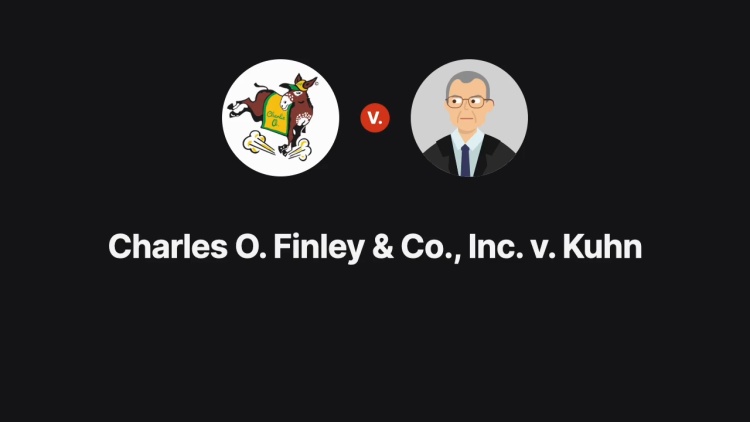Charles O. Finley & Co., Inc. v. Kuhn
United States Court of Appeals for the Seventh Circuit
569 F.2d 527 (1978)
- Written by Craig Conway, LLM
Facts
Prior to Major League Baseball’s trading deadline of June 15, 1976, Charles O. Finley & Company, Inc. (Finley) (plaintiff) and the Oakland Athletics sold the rights to the services of players Joe Rudi and Rollie Fingers to the Boston Red Sox for $2 million and the rights to the services of player Vida Blue to the New York Yankees for $1.5 million. Rudi and Fingers were to become free agents upon expiration of their contracts at the end of the 1976 baseball season. Immediately prior to the Athletics’ transaction with the Yankees, Blue signed a three-year contract extension, which was later transferred to the Yankees as part of the agreement. After a brief hearing, baseball Commissioner Kuhn (defendant) disapproved the Athletics’ assignment of Rudi, Fingers, and Blue as being “inconsistent with the best interests of baseball, the integrity of the game, and the maintenance of public confidence in it.” Kuhn expressed concern for (1) the debilitation of the Athletics club, (2) the loss of competitive balance in professional baseball through the buying of success by the wealthier clubs, and (3) the “unsettled circumstances of baseball’s reserve system.” Finley brought suit against Kuhn in district court challenging the Commissioner’s authority to make such determinations. The district court found for Kuhn and Finley appealed.
Rule of Law
Issue
Holding and Reasoning (Sprecher, J.)
What to do next…
Here's why 907,000 law students have relied on our case briefs:
- Written by law professors and practitioners, not other law students. 47,100 briefs, keyed to 996 casebooks. Top-notch customer support.
- The right amount of information, includes the facts, issues, rule of law, holding and reasoning, and any concurrences and dissents.
- Access in your classes, works on your mobile and tablet. Massive library of related video lessons and high quality multiple-choice questions.
- Easy to use, uniform format for every case brief. Written in plain English, not in legalese. Our briefs summarize and simplify; they don’t just repeat the court’s language.





